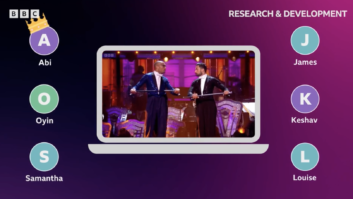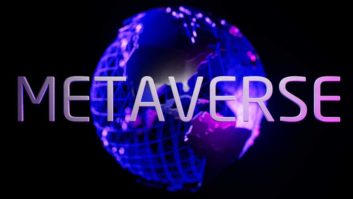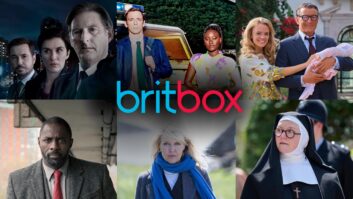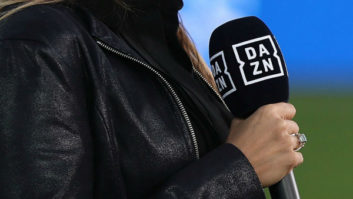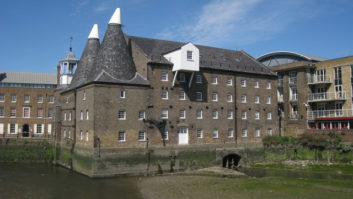In October 2022, the BBC announced the launch of its own version of Watch Party as part of a project to look at the future of personal data, social TV and metaverse-style interaction.
BBC R&D partnered with Sir Tim Berners Lee’s company Inrupt, which specialises in personal data stores. Inrupt provided the technology to enable the trial, using personal data stores in a way that’s never been done before in a live environment.
TVBEurope caught up with Max Leonard, principal technologist at Inrupt, to find out more.
Tell us a little bit about Inrupt.
Inrupt is a 5-year-old company co-founded by World Wide Web inventor Sir Tim Berners-Lee.
Inrupt is creating a new global infrastructure for the world’s data, based on Sir Tim’s potent new technology, called Solid. Solid gives people control over their data in a way that creates value for all — individuals, organisations and developers.
Solid is a W3C open protocol that extends the web in order to break apart the current coupling of applications and databases. With Solid, every individual stores their personal data in Pods (personal data stores). Individuals choose how the data is used and who gains access to it. Organisations and developers can request direct access to any piece of this data, without losing user trust.
Inrupt has industrialised the Solid technology into an enterprise platform, our Enterprise Solid Server (ESS) can be hosted by large organisations. Inrupt works with Global 500 enterprises and governments. Each instance of the platform is federated to every other.
How did the company get involved in the BBC’s Social TV project?
Inrupt has a bit of history with the BBC, who were one of the earliest adopters of Inrupt’s Enterprise Solid Server and first used it as a platform for their research into personal data stewardship.
The BBC was looking to figure out how it could best serve its mission to inform, educate and entertain the citizens of the UK in the emerging data economy. Originally, they were pursuing a different technological approach on a project called Databox, but after a number of trials, switched to Solid, as it was becoming the de facto open standard in this space.
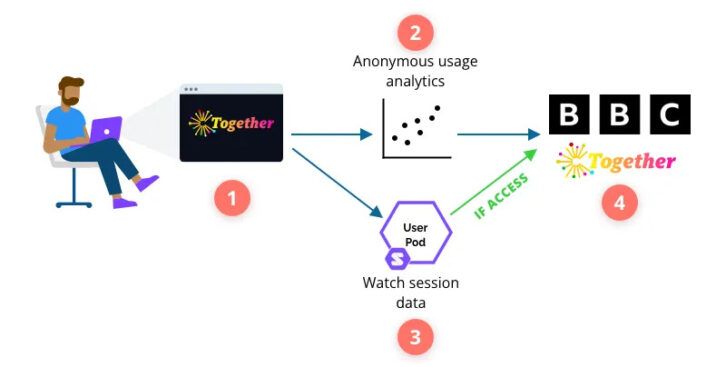
As Inrupt was the only organisation that had an enterprise-grade Solid server that was robust enough to hold real users’ data, the BBC came to Inrupt help build a platform to take the closed lab experiments onto the open web with real users.
What was Inrupt’s role, and what did that involve?
The BBC has a bunch of fantastic engineers who were already well versed in Solid, having worked with the technology for a number of years, so we didn’t need to help them much in this regard. Our main role in the project was to help them deploy their application in a secure way.
What technology was used?
The BBC used ESS as the Solid server. ESS held the data and the applications accessed the data with permission via Access Control Policy (ACP) rules set directly on the server. Both applications were HTML5 / JS web apps. All the data processing for the core application was done client side.
Video was served via MPEG DASH and synchronised by technology developed in-house.
Why is important for broadcasters to have access to their viewers’ data?
Broadcasters have access to their viewers’ data at the moment. What is important for the future is that they retain the ability to use this data for the right purposes in the face of new legislation and consumer expectation. People don’t actually have a problem sharing their data, as long as it’s used in ways they expect and appreciate.
It is also vital that broadcasters are able to innovate and create great data-driven services, and they need new kinds of data to do this. One of the hidden costs of the old “Web 2.0” approach to building centralised databases is that most service providers can only ever hope to collect a specific sliver of data about their users, with no avenue to collecting broader data that might inform more individualized experiences. By educating their audience about data control, the BBC is actually building trust and laying the groundwork for offering a broader array of data-driven services.
How do you get around GDPR, and safety issues?
You don’t get around GDPR, you comply with it. Solid is one of the few technologies that actually allows people to leverage their GDPR rights in an intuitive way. We sometimes refer to a “meet and exceed” capability. Solid gives organisations the tools to meet their current obligations under GDPR and similar regulations, while actually exceeding the letter of the law and delivering on the spirit of individual data rights.
With the the BBC project, we had the DPOs and security teams onboard as part of the project team from the get go, which meant there were no surprises at the end of the project.
What could other broadcasters learn from this project?
That the Solid tech works. Ecosystems built on Solid are starting to appear all over the world, now is the time to be thinking about how, as a broadcaster, you can use this technology to get ahead of the market and be ready for the Web3.0 data-landscape in the coming decade.
